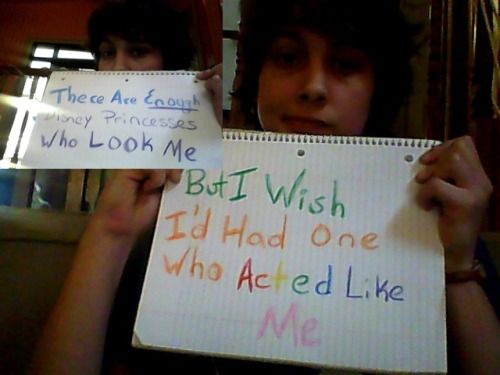After learning and seeing images/videos/articles about teens in the media and
the negative stigma around them in the media I think it was interesting and almost
a full circle to be able to Google and research about how teens resist and
talks back to the dominant images in society. After my Google search(which was
very difficult), I came across an article that discusses the opportunity a recreational center was having to allow teens to
talk back and discuss the common stereotypes they find themselves in. The article provided students in high school ages 14-18 to talk about the negative stereotypes they commonly are associated with and represent their selves. I then
changed my search to YouTube after being unsuccessful. I came across this video and teens are talking about the common stereotypes that are associated with them, usually always being on their phone or too busy on Facebook. The audience asks the teens questions, one of the questions was something about being constantly on Facebook. One of the teens replied back with parents not understanding because they didn't have Facebook and times have changed. I think that's 100% true teens are being judged for what's common in society today, such as using the internet when parents use the internet just as much. Teens talk back reminds me of Cinderella Ate My daughter and how society isn't letting teens experience and be normal 14 year olds but rather enforcing common stereotypes like Cinderella and finding a prince, when in reality its not going to happen like that! Teens need to be able to explore and socialize with their friends in order to really grow up. After searching for articles and videos on teens talking back it was so difficult, it makes me think why don't teens talk back as much as they should? what could we do to change this?
Sunday, April 27, 2014
Tuesday, April 22, 2014
Hip Hop: Free Write
 Free Write:
Free Write:After reading about Dr. Rose and learning about her work, it was evident that her goal is to inspire through speaking. Her work is focused on hip hop, and why it matters. Dr. Rose is internationally known for her respected work on post-civil rights culture, sexuality, and hip hop culture. Reading about and listening to her work it is evident about how passionate she is regarding her work and creating justice. She talks about how difficult and complex it is to discuss race and gender.
In her work she discusses hip hop and how hip hop artist commercialize black culture, in a powerful way which shapes gender images and perceptions. I think her thoughts regarding hip hop to not be dead is such a great thought, I think there’s a lot of commercially made music today and there needs to be authentic music in her words found “underground ” to help hip-hop culture. Today artists basically sing about whatever and whenever to make money, I can think about a bunch of hip hop songs that basically mean nothing and are just catchy phrases.
I think work is really focused on the youth and the importance of pop culture and society. I found this great article about hip cop controversy and how music has became to be nasty and threatening especially to females. I think Dr. Rose touches on racial stereotypes and how music has really changed.

In the attached article, I found some interesting pictures of common /popular artists today that are recognized for ghetto culture present in mainstream American culture.
Sunday, April 6, 2014
Queer Representation: In the Media
Those portrayals brought me back to last week’s reading, Cinderella Ate My Daughter. It reminded me of the reading because of the labeling and stereotypical ways of being a princess and being pretty or skinny. I think this relates so well to this week’s articles because of the stereotyping that is placed on gay and lesbians in the media and society.
I think Hollywood puts a big pedestal on celebrities and make it a big deal if they are lesbian or gay. However, more celebrities are using their story as a good representation to tell people its okay and that homosexuality shouldn’t be cruel and shunned upon. I think there still remains the negative stereotyping that remains and how gay characters in movies are depicted as being evil or dangerous, it’s important that there is public figures who can influence others to be comfortable in their skin and be examples for others. I remember seeing this video a month ago and when I read these articles it reminded me of this…I think its a great representation that although major struggles remain in society regarding gay and lesbians criticism and stereotyping, come good examples and role models are present in society.
And then I found this picture, which is a great representation of this weeks text and last week in one picture, evidence that stereotyping exists.

Subscribe to:
Comments (Atom)